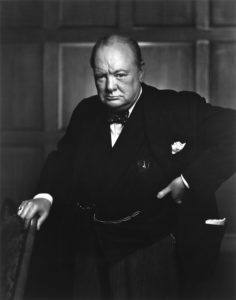It’s clear from many institutions of higher learning that there’s a difference between God and the university. But one New York Times columnist (who is himself a professor) doesn’t think a college education is bound to indoctrinate students with a liberal political bias or rid them of religion. Professing atheists or agnostics may not even be in the business of trying to get everyone else to join their ranks, but it’s still plausible that they’ll interject things into discussions every now and then that encourage those around them to think more and question everything rather than being like lemmings (according to some centuries-old misconceptions about them). That’s likely, even justified, in some respects if it’s driven in part by the fact that Emperor Constantine the Great put reforms in place that visibly impacted mainstream Christianity for a long time coming and ended up giving it a bad name, basically doing the opposite of what other Roman emperors did but still using the arm of government to get it done.
What Happens to the Religious Young People
Religious young people who don’t wish to abandon an upbringing that’s taught them to be God-fearing can’t be blamed for being under a paranoid impression (false or not) that unless they attend religious and/or conservative colleges and universities, professors and peers will habitually try everything they can to dereligionize them, to “reverse-evangelize” so to speak. This is seemingly one of the most popular things to do in academia, and there’s never been any sign of it letting up since it started (whenever that was). However, to turn it the other way around, believing a book like the Bible and taking words like those of Jesus seriously (especially here and here) will expectedly lead someone to feel compelled to proselytize no matter what anyone else says, whether in a secular university or elsewhere, even if it’s the only problem that person faces in terms of abiding by rules or the law. So the only significant difference there seems to be between the religious and nonreligious here has to do with the end they want to achieve, and sometimes the tactics they use to get there.
A quote from Winston Churchill
This well-known quote is falsely attributed to Winston Churchill but is actually an overly-refined version of a saying originally by François Guizot which proceeded to be borrowed and changed by some others later. Its most recent version is apparently a reflection on the current norm in the world of politics (which probably just happens to be a by-product of the homes people grow up in and the education they get, too).
 But probably no version of the statement has been intended to put another binding label on people based on their ideology and to disregard that is to basically disregard what Guizot and those after him might have observed or personally experienced in order to reach their unique conclusions. It’s likely that if they’ve even meant it in any seriousness, their truest intention each time has simply been to make a general statement about their times, and the specific terms are subject to change in their intended meaning.
But probably no version of the statement has been intended to put another binding label on people based on their ideology and to disregard that is to basically disregard what Guizot and those after him might have observed or personally experienced in order to reach their unique conclusions. It’s likely that if they’ve even meant it in any seriousness, their truest intention each time has simply been to make a general statement about their times, and the specific terms are subject to change in their intended meaning.
Liberal values in students
So a university education designed to instill liberal values in students doesn’t necessarily lead them to become or remain nonreligious or anti-God, nor does acknowledging God’s existence necessarily prevent them from subscribing to liberal viewpoints.






